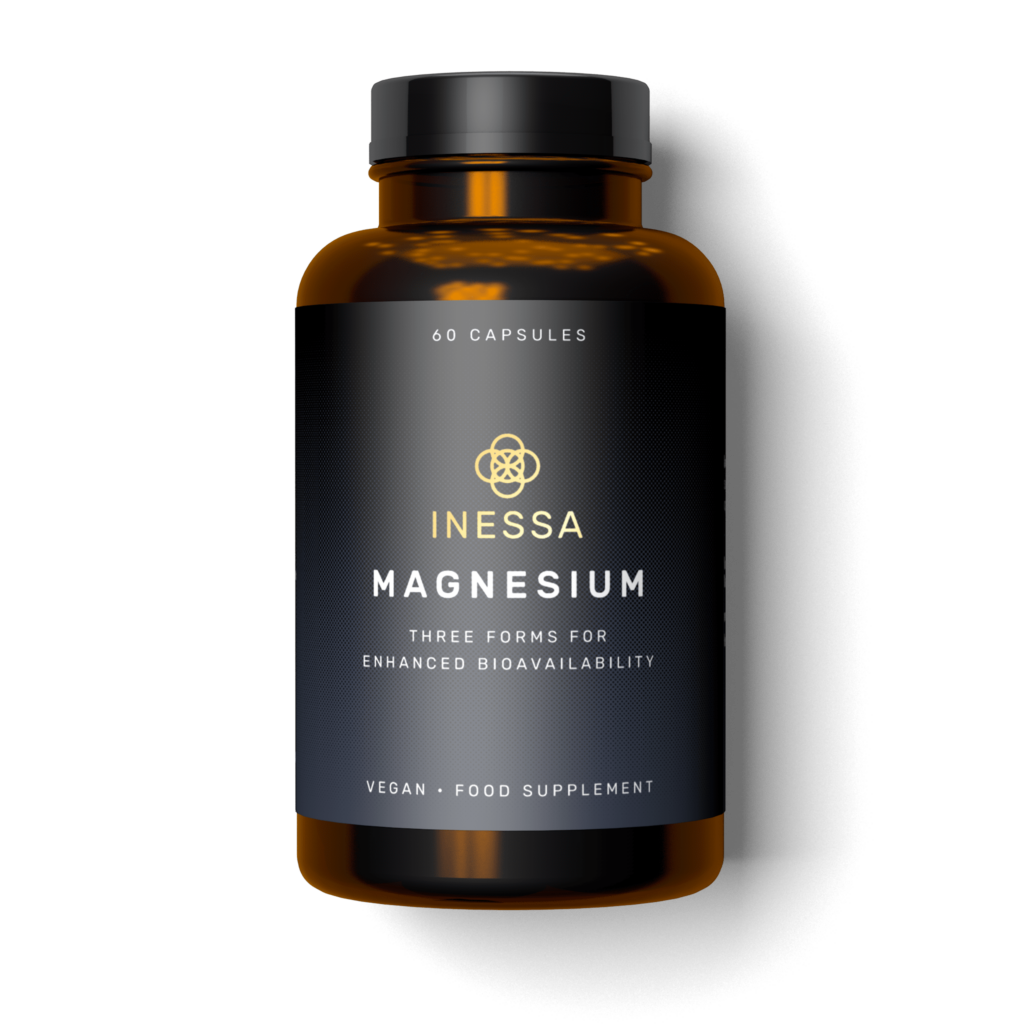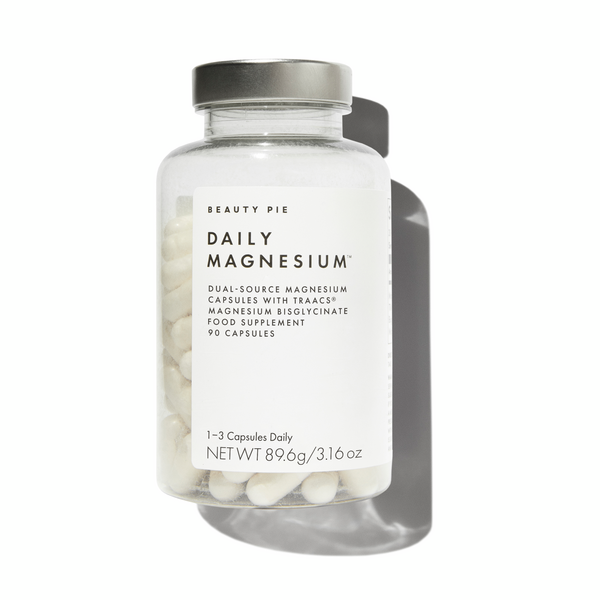Magnesium is having a bit of a moment in the spotlight and we’re here to get the answers to your questions when it comes to the benefits, how to take it, things to be aware of and how to choose the right form… because you want to skip the one that has you running to the bathroom! We caught up with award-winning supplement formulator, registered nutritional therapist and founder of Inessa, Aliza Marogy to debunk some common misconceptions and what you really need to know before supplementing so you can get the most out of taking it.

There’s a lot of hype on social media about magnesium right now… first of all, what role does it play in our well-being?
Magnesium is an essential mineral that’s important to our overall health and well-being. It’s involved in numerous physiological processes, playing a role in over 300 enzymatic reactions in the body – yet many of us aren’t getting enough. Studies show that it can promote restful sleep, contributes to healthy bones, teeth and muscles, and can soothe and support mood. In addition, a key function is its involvement in energy metabolism and protein synthesis, so if you’re feeling a bit lacklustre, it’s worth considering your intake, as it’s been shown to help optimise energy levels.
Are there different types of magnesium?
Supplements come in many different forms, each with its own properties and benefits. Some types are more bioavailable – meaning they’re more readily absorbed by the body.
One of the less desirable side effects of magnesium is that it can have a laxative effect, but this is not an issue with all types, and dosing plays a role, too. Some of the most common forms found in supplements include:
1. Magnesium oxide – the cheapest and most common form found in supplements. It has a high magnesium content by weight, but is poorly absorbed, and is more likely to cause digestive upset than other types.
2. Magnesium citrate – better absorbed and tolerated than oxide and is a good all-rounder for helping support healthy levels.
3. Magnesium glycinate – chelated with the amino acid glycine, which enhances its absorption and reduces its laxative effect. It’s often used for relaxation, muscle cramps, and ease anxiety.
4. Magnesium threonate – a newer supplemental form, which is unique in that it can cross the blood-brain barrier and is believed to support cognitive function. It’s also been studied for its potential to help with anxiety and depression. Along with bisglycinate, it’s the best form to aid relaxation, relieve stress, and support quality sleep.
5. Magnesium bisglycinate – highly bioavailable and well tolerated by those who find that some other forms cause gastrointestinal upset. It is often used for its calming properties, making it another good choice for those suffering from stress and insomnia.
Forms that are more easily absorbed by the body, such as citrate, glycinate, and threonate may be more effective than those that are less bioavailable, such as oxide. However, in making a choice, potential side effects and individual health and wellness needs should also be considered.
What symptoms could suggest someone may be deficient?
True magnesium deficiency – which should be diagnosed and managed by a medical professional – is rare, and different from having suboptimal intake. The latter is more widespread and estimated to affect around 50% of Americans. While UK data is lacking, we can assume similar as we follow comparable diet and lifestyle patterns.
Symptoms of deficiency include abnormal heart rhythm, muscle cramps and tremors, numbness and tingling and personality changes.
Given that it is involved in so many different functions in the body, having sub-optimal levels – as opposed to deficiency – can present in a variety of ways, from recurrent migraines and low mood, to cramping, fatigue, poor blood sugar control, osteoporosis and insomnia.
Is there anything you need to be aware of before supplementing it?
Magnesium supplements can interact with some medications, and may not be suitable for those with certain health conditions – such as those affecting kidney function. So it’s best to check with your prescribing doctor before starting any new supplement.
Can anyone take a magnesium supplement and are there any risks of “overdosing”?
Although supplements are generally considered safe for most people (see question above for contraindications), taking an excess can cause side effects. Overdosing can result in symptoms such as diarrhoea, nausea, vomiting, and, in severe cases, cardiac arrest. It’s worth noting that according to a 2015 EFSA ( European Food Safety Authority) report, toxic hypermagnesaemia is only seen at oral doses greater than 2,500 mg. According to the UK Department of Health and Social Care, taking less than 400 mg per day is deemed safe for most people.
What benefits might be seen with magnesium supplementation?
Supplementation may improve energy levels, support muscle and nerve function, and help regulate blood pressure and blood sugar levels. It may also help alleviate symptoms of PMS and migraines and improve sleep quality, especially when taken at night.
What time of day is best to take a magnesium supplement?
It’s one of those supplements that can be taken at any time of day – the best time is really the one that you’ll remember. Some people prefer taking it in the morning alongside other products that they may be using, but I usually advise taking it before bedtime, to promote relaxation and support quality sleep.
Can we naturally increase levels through diet?
Ingesting our nutrients through food is always best, though many people may not get enough of this essential mineral from their diet alone. Supplements should be used to support – and not in place of – a healthy diet. Foods that are naturally high include dark leafy greens, avocados, nuts and seeds, legumes, whole grains, and oily fish. However, the quantity of magnesium in our food can vary depending on factors including soil quality, and processing and manufacturing methods.
What’s your favourite way to take magnesium?
I take two Inessa Magnesium capsules 30 minutes before bedtime. The unique 3 form combination of threonate, bisglycinate and natural citrate from purified sea water makes a significant difference to the depth of my sleep. It’s well-absorbed and easy on the gut.





















